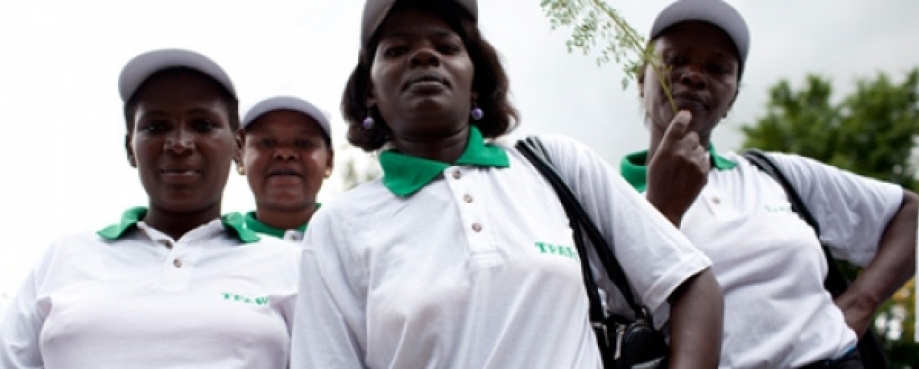
Purple is what we should be wearing on International Women’s Day, but it always reminds me of yellow flowers. I once found myself in Italy on March 8th and saw hundreds of women in the streets and restaurants, not a man in sight, carrying bouquets of mimosa flowers, laughing and enjoying each other’s company while the men took care of the family and home.
Today, International Women’s Day represents a day to celebrate and value women and their achievements, as well as to remind ourselves of the fact that despite making up 50% of the population, there is still a long way to go before women can be treated with equal dignity and respect.
But many of us don’t know that the first Women’s Day celebrations were organised by working women fighting for equal treatment and rights at work.
The first of these was in 1909, in New York, commemorating a strike of the International Ladies' Garment Workers' Union.
Later, in Denmark, Austria, Germany and Switzerland, women protested in the streets against sex discrimination at work and resistance struggles of working people in general.
A few years later, the day was associated with protests for women’s right to vote – the most famous of which was in 1914 when Sylvia Pankhurst organised a protest march to London’s Trafalgar Square in support of women’s suffrage.
Today, more than ever, equality between women and men is on the agenda. There is increasing evidence that more women in the workplace is good for the economy, good for business, and good for the women themselves and their families. There’s also a lot more talk about the benefits of women in senior roles too. Companies that have women on the board and in the executive decision-making positions are nicer places to work, more creative, some studies point to increased efficiency and profitability.
There is also lots of talk about empowering women. Everyone seems to be committed to empowering women – governments, companies, the international development community and civil society. I’ve been passionate about women’s rights and have worked as a gender specialist, so why is all this talk about empowerment making me grumpy?
The struggle for women’s equality has been hard-fought – not just by speeches or actions by a CEO or government minister, but by women organizing collectively and demanding their rights. Women have fought for the right to have a voice, choice and control over their own lives. They have more often than not recognized that they are stronger by tackling injustice and discrimination collectively rather than individually.
It’s not coincidental that one of the first strikes were by women garment workers, as mentioned earlier protesting inhuman conditions in the workplace in New York in 1909 - long before the ILO or the UN was established. They fought and they won, and to this day continue to fight for their right to equal treatment. Women working together have mediated peace deals by finding a common negotiating space between conflicting parties – women who have lost husbands, fathers, brothers, sons. They have found ways to express solidarity with one another across language, race, religion, political and class divides.
I don’t believe in the patronizing idea that some can bestow ‘empowerment’ on others. But there is a huge amount that those in positions of power and authority can do to help remove the blockages that stand in the way of women’s equality. But I get grumpy when they claim to empower women. They can advocate, provide resources, advice, help change legislation and systems that discriminate against women. These types of actions have made a huge difference, and we need more of them.
Empowerment is a thing that can only be achieved by us acting individually and collectively – in control of our destinies. It is no different from the universal right of workers to freedom of association and collective bargaining.
Happy International Working Women’s Day!!
Find out more about Empowering Women Workers in global supply chains.
